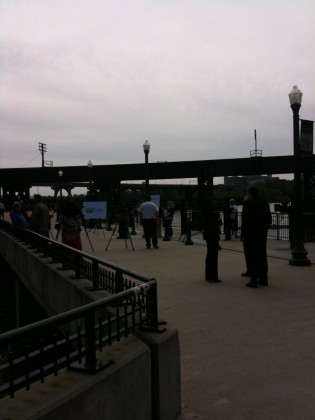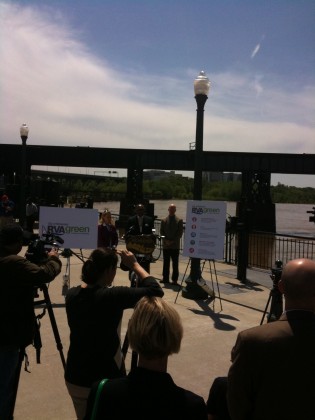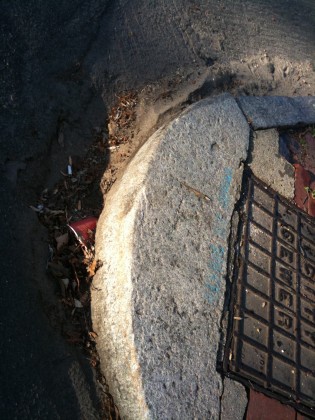Lamar, a Louisiana-based outdoor advertising company, filed suit against Richmond to stop the city from trying to force the removal of the billboard it operates downtown on Mayo Island.
The case argues that removal of the sign cannot be enforced regardless of whether or not it conforms to zoning regulations, thanks to a law passed in 2008.
That law prevents localities from forcing the removal of a structure or building if the property owner has paid taxes on it for more than 15 years.
The billboard is visible from Oregon Hill. I remember publicly speaking on this issue over ten years ago at City Council as an eyesore for the James River. Here is an excerpt from an earlier article on the controversy:
In addition to the Mayo’s Island billboard, which was built out of compliance with city zoning regulations in 1977 and has been ruled illegal a number of times, the company also plans to continue negotiations related to eight other billboards that for various legal reasons remain items of dispute with the city.
Any debate over the Mayo’s Island sign is moot to Leighton Powell, executive director of Scenic Virginia. He says Lamar’s use of it as a bargaining chip in its negotiations over the other signs is a sign of bad faith.
“Here’s an update: The billboard — it’s still up, and it’s still illegal,” says Powell, who has a not-so-subtle suggestion: “The city should consider going after all of the illegal profits of that [Mayo’s Island] billboard dating back to 1977.”
Question for readers: If you put up an illegal commercial billboard on your own property, how long do you think the City would take before forcing you to remove it?



